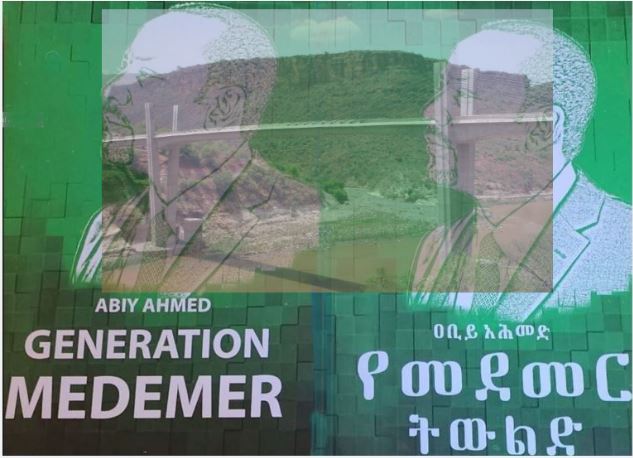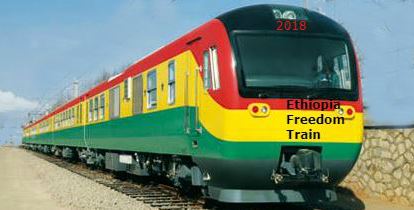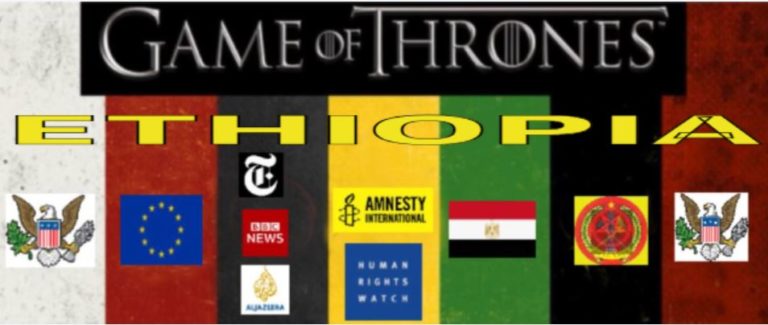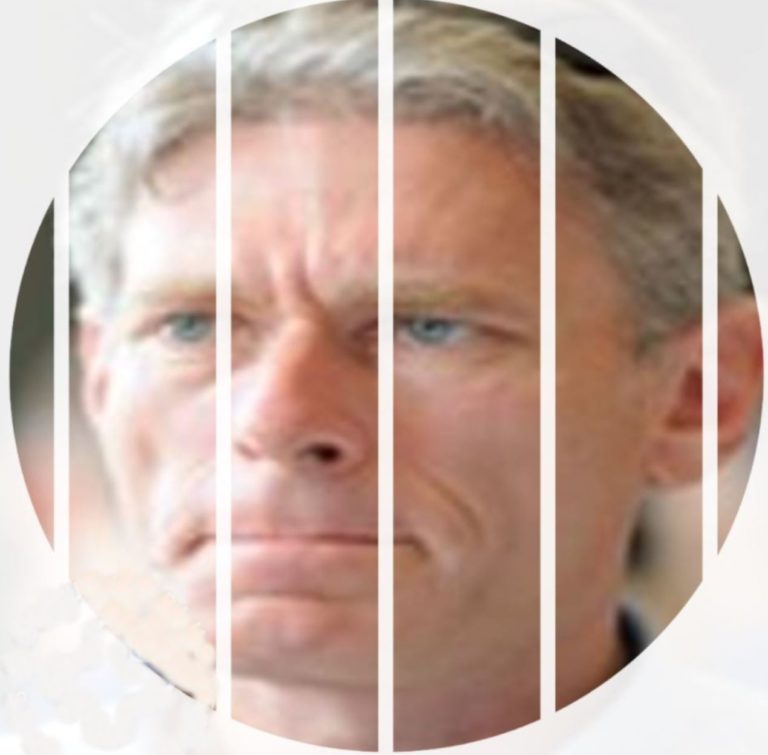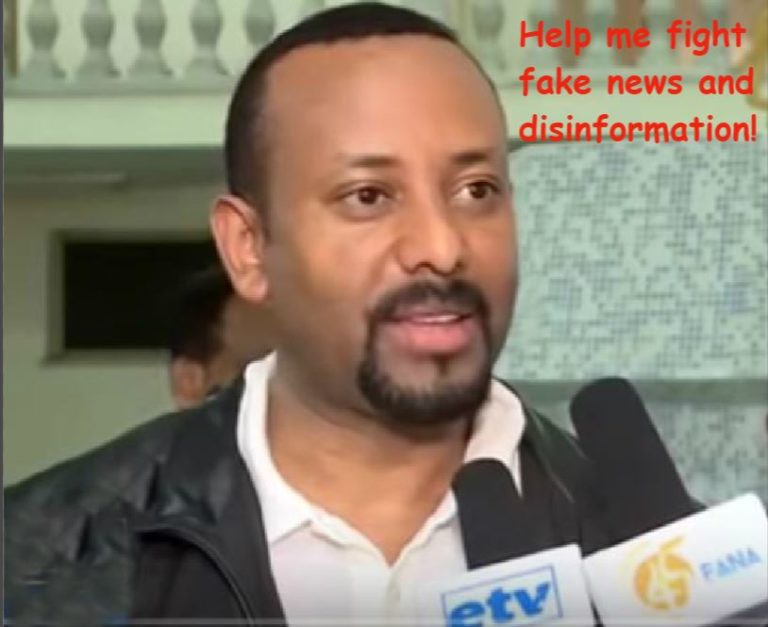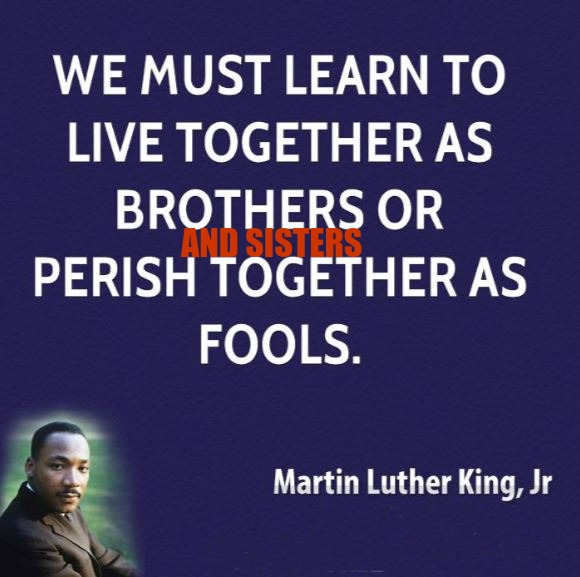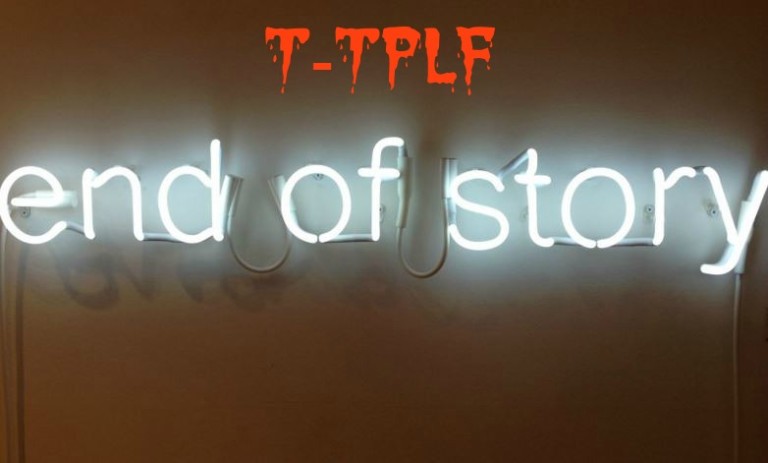“Medemer Generation” (MEDGEN): Ethiopia’s Bridge to Peace, Prosperity and Progress (Part II)
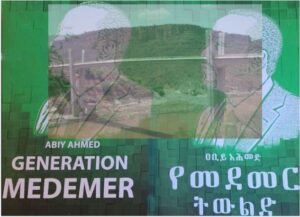 Reviewer’s Note: This is Part II of an “interpretive book review” of Prime Minister Abiy Ahmed’s (hereinafter “Abiy,” “the author”) latest book, “Medemer Generation” (“MEDGEN”). While this review commentary stands on its own merits, I strongly recommend reading Part I, “Medemer Generation”(MEDGEN): Tip of the Spear for Ethiopia’s Peace, Prosperity and Progress,” to gain a fuller understanding of the reviewer’s purposes and approach.
Reviewer’s Note: This is Part II of an “interpretive book review” of Prime Minister Abiy Ahmed’s (hereinafter “Abiy,” “the author”) latest book, “Medemer Generation” (“MEDGEN”). While this review commentary stands on its own merits, I strongly recommend reading Part I, “Medemer Generation”(MEDGEN): Tip of the Spear for Ethiopia’s Peace, Prosperity and Progress,” to gain a fuller understanding of the reviewer’s purposes and approach.
In Chapter 4, Abiy addresses Ethiopia’s diverse intergenerational challenges in a historical context. He argues Ethiopia was a global power until the 17th century when it decided to close its doors to avoid corrosive foreign influences. “This eventually culminated in a closed-door policy and shrinkage of Ethiopia’s international influence.” Combined with internal conflicts, closure to the outside world had a negative impact on Ethiopia’s cross-border trade as well as acquisition of technology and knowledge. “It left the country alienated and hampered its growth.”
In the 19th century, Ethiopia reluctantly opened its doors awakened to the reality of aggressive European colonial expansion. It sought diplomatic allies to fend off potential colonial aggressors and maintain its independence and sovereignty. Ethiopia’s leaders had the wisdom and foresight to forge cooperative relationships and partnerships with outside powers in a carefully orchestrated effort to protect the country’s sovereignty while striving to achieve levels of industrialization and civilization on par with the colonial powers.
Abiy places supreme importance on Ethiopia’s extraordinary victory over Italian colonial forces at the Battle of Adwa in 1896. Ethiopia, for the first time in world history, proved that a black nation can decisively crush a white militarily advanced European power with lightning speed. It took Ethiopian forces less than a day to wipe out the invading Italian army at Adwa. He believes that victory was a defining moment in Ethiopian history and has imprinted pride, self-respect, courage, heroism and gallantry in the DNA of every Ethiopian since. Repeatedly throughout the book, he expresses puzzlement about the descendants of such victorious forebears could fall prey and be enslaved to foreign ideologies.
Abiy expresses ambivalence for the predicament of the post-Battle of Adwa generation. That generation keenly understood Ethiopia could avoid the colonial fate of other African societies if it could only speed up its development to stand at par with the European nations. But that generation lacked self-confidence to develop a road map or come up with a homegrown approach to industrialization, modernization and development. The legacy of that predicament has been passed intergenerationally creating a crisis of identity and lack of self-confidence as younger generation of Ethiopians began to believe Ethiopia can advance only by importing foreign ideologies.
Abiy finds importation of Marxism-Leninism as a model of change for Ethiopia not only futile and destructive, but also incomprehensible. How could the children of a country that has kept its independence for millennia and descendants of the victors of the Battle of Adwa mimic and blindly accept lock and stock and barrel Marxism-Leninism as a way of economic development and social organization? He argues, “We spent years learning at the foot of Westerners; the Europeans who had defeated and sent off at Adwa, we embraced through the prism of Marxism Leninism. The habit of mimicking and following the footsteps of the Europeans that came within the communism package came to be considered as civilized.”
Abiy argues Marxism-Leninism became a deadly litmus test for Ethiopians of that period and left the country open to chaos and brain drain. “The Ethiopians who had emigrated in thought during the student movement eventually emigrated in body leaving the country to become a play den for the ignorant. Violence came to be considered as wisdom and evil as strength and corruption came to be viewed as smart and laziness as clever. National values were lost institutions demolished.”
Abiy believes Medemer Generation (MEDGEN) will recapture the dream of an ascendant Ethiopia and formulate a road map to seize the missed opportunities of past generations. That he believes begins with building a “culture of going beyond selfish motives into collective mentality,” creating a mindset of “contributing rather than focusing on what one is owed” and harmonization of “individual success with national interest.”
One of the most extraordinary revelations in the book is Abiy’s deep personal disappointment and sadness that Ethiopia should be known as the poster child for famine and starvation. ( I have carried that shame myself for decades.) Abiy finds it impossible to believe how a country with so much fertile land, boundless water resources and manpower could allow itself to go hungry. He argues recurring famines have forced Ethiopians to “hold their heads in shame and put a dark stain on the proud history of our ancestors’ blood written on the mountains of Adwa.” He vigorously asserts, “Ethiopia does not have a famine history worse than Europe but it has been the poster child for famine in the late 20th century.” He urges, “It is imperative to ask whether the association of Ethiopia with famine is an intentional and racist attempt to taint our country’s image.”
Abiy believes MEDGEN will be the “generation of abundance.” He believes one of the core mission of MEDGEN to be transformation of Ethiopia from a beggar nation to a benefactor, giver, donor nation. Job #1 for Medemer Generation is to undertake an agricultural revolution and ensure Ethiopians can feed themselves without aid or handouts and restore Ethiopian national pride. He cautions that it is narrow-minded to conceive of economic growth exclusively in terms of food security as Ethiopia has resources to expand into other areas of development.
For Abiy, true heroism is not victory in fighting useless bloody internecine battles but creating surplus food and changing Ethiopia’s from Horn of Conflict to Horn of Plenty. He is absolutely convinced Ethiopia can achieve food security in just a few years because it has millions of hectares of uncultivated land and rivers and water resources that have been barely touched. All it takes it for Ethiopians to collectively put their shoulder to the wheel and noses to the grindstone and keep on pushing for prosperity.
In Chapter 5, Abiy explains and argues MEDGEN will be different from previous generations because it will be powered by creative imagination, scientific knowledge and ethical integrity. I understand Abiy’s core argument in this chapter in the following proposition, “Ethiopia is poor because its people lack education and knowledge to transform themselves and their country. MEDGEN will excel in knowledge and conduct itself with ethical integrity.”
Abiy believes MEDGEN will be a transformative generation because it has ready access to vast knowledge sources and using that knowledge can transition Ethiopia from poverty to prosperity and make it globally competitive with new ideas and innovations. He believes MEDGEN will thrive in a culture of research, intellectual curiosity, creative imagination and critical inquiry. He envisions “a society filled with lifelong learners” with an active imagination capable of keeping up with the dynamic change of knowledge in the modern world.
Abiy perceives dual dangers in the way “knowledge” is merchandised, curated and distributed globally and domestically today. First, he fears the spread of a pernicious new mental colonialism “because Google and social media platforms are controlled by a few individuals who decide what information is available and transmitted through their platforms through elaborate algorithms.” Second, he has deep concerns about the quality of domestic educational institutions which he says “should be more than degree mills” and organized to “spark the imagination of the youth and equip them with problem solving skills” in spaces where students can stretch their imaginations. He proposes the creation of “centers of excellence” in Ethiopia to attract students from all over Africa because in the contemporary world survival is determined if Africans band together and become competitive in science and technology.
Abiy believes survival in the 21st century depends not on military might but on a nation’s capacity to innovate and make scientific advancements. The nations that can nurture and inspire the minds of their youth generation with scientific knowledge and imagination will be the winners. The rest will be consigned to poverty and dependence on the handout of those with knowledge.
Abiy believes the key to Ethiopia’s global competitiveness is the ability to make knowledge accessible to all sectors of Ethiopian society. He wants to vastly expand access to physical and virtual libraries with digital network infrastructure for the speedy acquisition and transmission of information and data. He argues for the establishment of research institutions and laboratories and the creation of forums for philosophical, political and social debates and discussions. He believes there should be knowledge incubators in neighborhoods and schools and ready access for youth to science museums and other exhibition centers that could spark curiosity and hunger for knowledge.
Abiy expresses great concern over the possible seepage of the “collapsing (Western) moral values” into Ethiopia and Africa. I believe Abiy is horrified by the “gross corruption, unspeakable cruelty, insatiable greed, indolence and irresponsibility, moral bankruptcy and ethical collapse” of industrialized societies. I read his analysis as a call to societal institutions in Ethiopia to band together to defend against seeping/creeping moral depravity.
In a later chapter, he discusses the moral decline and decadent “lifestyle of theft, greediness, cruelty, hatred, laziness, apathy, finger pointing rather than taking responsibility ” that has been passed down from generation to generation. He feels MEDGEN must face this legacy, overcome the moral crisis and restore moral excellence to pass on to the next generation. In my view, Abiy is deeply concerned about building an ethical society in Ethiopia on a foundation of certain basic virtues such as hard work, trust, honesty, unity, diligence, altruism, Pan-Africanism and so on. Ethical probity will not necessarily come through classroom instruction but through practice, by living ethical lives manifested in our actions and thoughts.
Abiy explores the metaphysical and transnational dimensions of generational development and change in this chapter. He uses the notions of “transcendentalism” and “transnationality” to discuss his ideas of an aesthetically, ethically and spiritually enriched generation and society. In my view, Abiy’s resonates certain well-established “transcendental” maxims: “Change begins with oneself. Those who cannot change themselves cannot change the world. Be the change you want to see in the world. We see the trees for the forest. Eyes on the prize. Not by bread alone. Cleanliness is next to godliness. Attitude determines altitude.”
Abiy’s notion of “transcendentalism,” I believe, resonates the core ideas of the philosophical movement in America in the 182os which is founded on the notion of the inherent goodness of human beings and nature, and that society/ institutions have corrupted the goodness of the individual. However, Abiy’s “transcendentalism” embraces the idea that wo/man must constantly cultivate and enrich his/her capacity to change by engaging in synergistic social enterprises (in contrast to contemplative reflection) with others and careful husbandry of the natural environment.
I understand Abiy to argue that change begins in the individual mind and spreads progressively throughout society. A mind polluted with ignorance, hate, bigotry and jealously will project the same spiritual poverty on others in society. In this regard, he makes a number of persuasive interrelated arguments. First, poverty of mind (ignorance, lack of education) and intellectual bankruptcy (those who cannot engage to debate issues in good faith, but lie, distort, name-call, target, & destroy people/communities by any means possible) are the chief obstacles to social development. Second, I understand his argument to be that people reflect their environment. People who live and work in aesthetically satisfying environments are more productive, cooperative, creative, innovative and effective. If they live amidst natural and man-made beauty, in clean cities and comfortable working spaces, they are likely to enhance their quality of life as well as achieve longevity and gain peace of mind. Abiy argues:
“A person who transforms his surroundings with greenery is likely to be confronted with the barrenness of his mindset. A person who works in a clean and bright office is less likely to engage in petty corruption or wallow in idleness and is more likely to show diligence and initiative. A person who has begun to take care of plants and animals would find it difficult to show cruelty to fellow human beings and is more likely to be more compassionate.”
He cites Japan as a model of balancing and blending modernity with its own traditions. He admires the Japanese culture of upholding tradition while absorbing eclectically from the West. He finds parallels in Ethiopian history and tradition. He persuasively uses the “consciousness” (motivating ideas) leading to the construction of the Churches of Lalibela to make his point. He wonders, “St. Lalibela asked why travel all the way to Jerusalem when we can build Jerusalem in Ethiopia.”
Abiy believes Ethiopians are blinded to their own greatness, history and rich culture. He argues we have failed to appreciate and add value to the abundance of beauty in our country, both natural and human. One of the core missions of MEDGEN is to be environmentally aware and strive to preserve and develop the natural beauty of the country in harmony with aesthetically pleasing modern infrastructure and execute projects that harmonize the ancient with the modern, the natural and man-made are blended in sublime harmony.
Abiy projects MEDGEN to Africa in general. He believes Medemer Generation has transnational/transcontinental responsibility. He sees it spreading Pan-African values. Transnationalism generally refers to flows and exchanges of ideas, information and things and movement of people across national borders. I believe Abiy uses the concept of “transnationalism” to describe a state of mind and being for Medemer Generation. That state of mind signifies African solidarity and pride.
I believe Abiy promotes his idea of “transnationalism” as a response to Western narratives of Africa as a dark (to mean savage) continent which needs to be civilized (enlightened). MEDGEN will spark continental African Renaissance driven by Pan-African values, and Ethiopia’s revival and strength will power ideological change with continental transformative ramifications. For instance, MEDGEN’s transnationalism could help rebuild the torn social fabric of African societies with a new consciousness of an Africa that will demand its rightful place in the world. Through transnationalism, African societies could rise above petty internal divisions and pool their resources to deal with recurrent humanitarian crises, pull Africa out of poverty into prosperity.
In Chapter 7, Abiy explores his ideas of Medemer as a “generation building formula.” He returns to his original idea in his first volume that human beings could not survive in their day today lives if they attempt to live in isolation. MEDGEN for Abiy is the generation that harmonizes its Ethiopian identity with broader African identity and its African identity with global citizenship and cosmopolitanism. It is an environmentally conscious and patriotic generation. It considers living in peace as being more heroic than victory in war.
He uses the metaphor of ants as a natural example of synergy to achieve the greater common good. Ant society, miniscule as it is, manages to function in a system that ensures strong cooperation to such an extent that they are regarded as super beings. They have achieved a higher level or form of social existence much more than other large animals. The most distinguishing trait of ant behavior is their synergy, sociability and teamwork. Ants, in my view, are the ultimate archetype of medemer. Ants do not act individually. They behave according to the needs of the colony in specific roles such as worker or soldier ants. The central and singular “mission” of ants is the “ant colony” which forms the nest (living space). They always work for the for the good and unity of the colony. Ants can do extraordinary things. They can pull ten times their weight. They work as a team. They never give up. They overcome challenges and even float on water. They can drive out a herd of elephants. They are invincible.
I understand Abiy’s ant metaphor to suggest that what matters is not the size or wealth of a country but the ability of its people to work synergistically for the common good and cause. For instance, though Ethiopians were poor and wielded bows, arrows and swords, they were able to defeat a mighty colonial power (elephant) with superior firepower. Their unity and sense of common purpose was enough to give them determination to defeat a mighty military power.
I believe Abiy’s message is that we should all find the hidden “ant” in us. (“Ants united can never be defeated.”) Certainly, he believes MEDGEN will function in the spirit of ants.

Abiy presents his ideas of “becoming as truth” in this chapter. I interpret that to mean truth as praxis. I addressed the praxis aspect of Medemer in Part II of my review of the author’s first volume in October 2019 and also in the context of the politics of the Horn of Africa, among others.
In MEDGEN, I understand his idea about “becoming as truth” essentially as truth as praxis (social practice). In other words, truth is not some abstract thing that exists independent of human action. It is the act/process of engaging, applying, exercising, realizing and practicing ideas. It is the process of reflection and action upon the world in order to transform it. By “becoming truth,” one takes on the responsibility of acting to create a more just world. Medemer is not an idea but a term that signifies actions. Medemer does not exist in the abstract, though it is a mindset. It is social energy that comes into being through individual and collective action.
I also believe Abiy’s notion of “becoming truth” reflects existential truth in the Kierkegaardian sense in which one lives in authenticity conceived in terms of honesty, integrity, sincerity, and other virtues. In this sense, Abiy’s ideas, in my view, resonate with Sartre’s concept of truth as a creation of human reality intimately connected to human desires and goals, human choice and action. Everyone is responsible for one’s actions and live in a manner that enhances the lives of others and not diminish them.
A third dimension of his notion of “becoming truth,” I believe, refers to the pursuit of truth through scientific inquiry in a process of testing and proving propositions through practical trials and experimentation. Science reveals reality through knowledge and inquiry that are testable and replicable. Therefore, “becoming truth” is a continuous process of verification, testing and replication. “Becoming truth” never ends as there is no destination, no final truth.
Abiy argues politics should not be something left for a few elites while excluding the majority of all the broad masses. The masses need to be heard and participate in public affairs and seeking solutions. They must experience “becoming truth.” He attributes the historical deficit in state legitimacy and inability to undertake nation building in Ethiopia to the fact that politics has been exclusive and the domain of elites. He believes inclusive politics is essential because of Ethiopia’s diversity. Ethiopian state building requires bringing together communities with different ethnic identities, religious affiliation and cultural and linguistic heritage into a common purpose.
The historic political problem in Ethiopia has been the approach to diversity. Previous governments sought linguistic and cultural assimilation to bring about national cohesion and unity through uniformity. The failure of the assimilationist approach was one of the major factors for the collapse of the imperial regime and takeover by the military. The military regime’s excessive focus on diversity proved to be a cause for division dashing hopes of a multinational federation that would blend diversity with unity. Neither approach appreciated the complexity of the problem of governing a multinational, -lingual, -cultural society.
MEDGEN is meant to bloom through harmony of different religious and ethnic communities in a spirit of solidarity and mutual respect and unity in common cause. Medemer provides an approach, a perspective to bring about a state of national becoming or flourishing through an approach and synergy. MEDGEN will not be conflicted by issues of individual or collective identity because it embraces diversity as a source of beauty and dynamism.
In Chap. 8, Abiy proclaims MEDGEN is the primary owner of the New Ethiopia. MEDGEN are the young people who are below the age of 20 at the time of the change in administration in Ethiopia over the past 5 years. MEDGEN is different from previous generations because it is infused with multinational unity, ethos of fraternity with a well-developed civic culture and strong transnational roots and connections. Francis Fukuyama argued capitalist liberal democracy was the “end of history” because it had successfully removed the “internal contradictions” that had ruptured past schemes for ordering society. I understand Abiy to suggest that MEDGEN is Ethiopia’s best (and possibly last) chance to rewrite a new chapter (if not a new book) in Ethiopian history. In my view, he believes MEDGEN will resolve the historical political (true federalism in contrast to bogus “ethnic federalism”), social (genuine diversity) and economic (from poverty to prosperity) contradictions in Ethiopia.
MEDGEN is foreordained to achieve true federalism in Ethiopia where diversity is embraced and multiple languages are operational. Ethnic identity will blend with national identity and bring about national dialogue and reconciliation. He sets out the MEDGEN’s distinctive characteristics and features. MEDGEN places a premium on learning, intellectual curiosity, creative imagination, innovation and discovery. It is a generation that will thrive in a lifestyle based on respecting human dignity, compassion and inclusive patriotism.
Abiy places enormous importance on values in society. I understand Abiy to argue generational values determine generational destiny. In other words, a generation is what it values most. Values determine not only individual character but also destinies of nations. Values drive social and political action. A generation that values freedom practices this value by acting to protect and preserve freedom of others in the community. If it values peace, it will practice and promote peace as a cultural expression. A generation that values tolerance, consultation and mediation will solve problems peacefully by creating political environments that advancing national dialogue. A generation that values knowledge and learning builds libraries, schools and universities, research institutions and laboratories and promotes a strong culture of reading and studying. Abiy is cautions about development of values. He argues the values we develop must be conscious of the culture, economy and politics of Ethiopian society. MEDGEN shall seek values that advance the country’s prosperity, national interest and progress and shape coming generations.
Abiy reveals his extraordinary appreciation of art (in all its expressions) in Ethiopian society. He argues music, theater, film, painting, architecture, literature, etc., have immense capacity to influence the development and creation of shared identity. Art can generate and propagate generational values and help develop national consensus. In my view, he has a dual conception of art. The first is what I would call instrumental. Art can contribute to the overall enhancement of human life and nation building. The second is that art must be appreciated for its intrinsic value, to create beauty and entertain.
Abiy believes in full freedom of artistic expression and independence. (His passion for art suggests his own artistic personality overshadowed by politics and duties of government.) He sees the government’s role in art as purely supportive. Government may pass laws and implement policies to advance artistic expression and endeavors. Government should provide educational and training facilities and performance spaces and environment for artists to reflect on society and inspire the next generation.
Abiy urges development of “emotional intelligence,” which is empathetic/ sympathetic state of mind to manage one’s emotion, overcome conflict and strive for higher values and beauty. He argues emotional intelligence is necessary to enable us to live in harmony and express, share and manage feelings with others. That lack of emotional intelligence is often observed in Ethiopian society in behaviors of intolerance and resentment. Small political differences are blown out of proportion and lead to grudges and outbreaks of violence. He also perceives it in the “many of the episodes of cruelty in our history” where “fear has made people overestimate threats to their existence and commit terrible acts of cruelty.” Arrogance (complacency) created from success (“fulfilled dreams”) set the stage for slacking off and laziness.
For Abiy, in my view, one of the greatest virtues is trust. Without trust there can be no social relations that leads to collective progress. He argues a generation that lacks trust is destined to fail. Trust is what gives law the power of legitimacy. The source of many problems and historical injustices in Ethiopia emanate from lack or low levels of trust. “A society with low levels of trust will struggle to sustain its systems and institutions or build new ones its unity and resilience will be under erosion and it cannot build anything.” He asserts the cost of mistrust is endless conflict and strife. For Abiy, building trust is a long-term societal endeavor and believes it results from common values created by religion and culture.” For MEDGEN, building and practicing trust is one of its core mission.
MEDGEN will be a “trusting generation.” It shall “develop the value of trust to chart a new way forward. The first step in this regard is the creation of social institutions that can contribute to the moral edification of the generation.” That trust will transcend ethnicity, class or other factors. For Abiy, trust is the brightest star in a constellation of values that contribute to “moral excellence.” MEGDGEN must rise above the “moral decline we are witnessing in our homes, religious centers and social institutions” and establish trust.
In Chapter 9, Abiy expounds his ideas on developing a culture of social responsibility for MEDGEN. In this regard, he places supreme importance on education and the functioning of a responsible media. Abiy perceives education is a surefire generation building methodology. The greatest threat to MEDGEN comes from the poor quality of education and failing schools which has resulted in the rise of “an apathetic and socially disengaged generation.” He finds historical roots to this problem in perspectives during the original establishment of modern education in Ethiopia. In the early days, there was a generation that was shaped in “European reality, advocated for pursuit of European knowledge and tried to look at Ethiopian problems through a European lens causing significant harm.” A contending approach emphasized learning from homegrown wisdom and believed solutions to our problems could be found by focusing on our own wisdom rather than by looking to European knowledge. Still others proposed combining the local with European knowledge to design our educational system emphasizing the universality of knowledge.
The major practical problem was that Ethiopia’s modern education failed to give adequate attention to science and technology and not utilize education as part of the national solution seeking process. He prescribes, “Our system of education ought to be one that can shape the generation and offer solutions to national problems.” Education ought to promote values of patriotism and fraternity and enhance appreciation for beauty, science and technology. To improve the educational system, he proposes six basic measures covering curriculum development, teaching methods, ethical/moral training, teacher training, providing students learning tools and supplies and even school lunches. Abiy makes a special case for early childhood education. He believes learning must begin as early as possible and not only in basic language and computational skills but also in developing social, self-awareness, self-management (life skills) and ethical skills to distinguish between responsibilities and rights and caring for others.
Abiy places great emphasis on the role of media in “generation building.” He starts from two premises. First, in the internet age, traditional government monopoly of information is gone. Government attempts at media control and regulation have proved futile. Second, the impact of social media in dissemination of information has been transformative. In this context, media poses opportunities and dangers to Ethiopian society. Media can play its traditional role as a watchdog, voice of the people, identifying social problems and holding government power in check. The media is instrumental in building a democratic culture of robust debate and discussion and in creating forums for free public discussion to enable citizens to participate in seeking solutions. But the media must exercise great responsibility and not endanger the national interest and threaten the integrity of the country’s sovereignty in the name of press freedom. It must abide by universal standards of journalistic professionalism and integrity. The problem is Ethiopian media suffers from chronic problems including lack of professionalism and training. Being a YouTuber or running a website does not make one a journalist or professional.
Abiy argues in diverse country like Ethiopia, there is a need for caution “so that content and discussions broadcast through media will not instigate or encourage chaos or anarchy.” He is fully committed to “ensuring the freedom and independence of the media” from government regulation and self-policing of the media through a “broad set of actors, owners, administrators and journalists must work together with a view to protect and safeguard the national interest.”
He sees several problems with media in shaping MEDGEN. The major challenge of the media in shaping MEDGEN will be to overcome the overflow of negative information, dis/misinformation and propaganda coming from different directions. The lack of media critical awareness and professionalism has made them tools for spreading news and information that undermines the country’s unity, peace and stability. This has resulted, in certain cases, in propagation of messages of hate that have caused violence, death and destruction.
In order to achieve a responsible media, Abiy proposes we must build a homegrown social media communication environment in the long term and in the short-term focus on developing legal and administrative frameworks that will help in managing the negative effects of contemporary social media. Abiy has special concern regarding the impact of media on children. I believe his argument is that social media today has become a cesspool of information and disinformation with harmful and subversive effects on young minds. He finds this aspect of social media concerning and requiring concerted social and legal action.
In Chapter 10, Abiy examines MEDGENs future in a reginal/global context and the potential opportunities and threats it faces. He frames MEDGENs fortunes in the context of emerging regional geopolitical transformations. His analysis is structured around the decline of the unipolar Western system and rise of China and implicitly BRICs countries. He argues the US and its Western allies are facing stiff challenges economically and militarily and a multipolar world is evolving. He believes, with the relative decline in energy dependence, the US has reoriented its attention away from the Middle East and Horn region to the Pacific and Far East to fend off China’s increasingly influential role. This has left a vacuum in the Horn and the Middle East and the West’s rivals are taking advantage. Sanctions, economic chokeholds and other penalties are causing more defiance and accelerating the realignment of African countries from Western countries.
On the other hand, Abiy argues Middle Eastern countries have come of age and can handle things for themselves. They have managed to “transform deserts into great tourist destinations and trade hubs. They are emerging from the geopolitical shadows of the US and becoming major international players that are changing international balance of power.” They are taking greater responsibility for their security. These countries are integrating the Horn region in its regional security architecture in light of the Red Sea trade corridor and its increasing geopolitical importance. The security of the Horn and the Middle east will increasingly mesh and become one.
The great opportunity for MEDGEN is the strategic position of the Horn to provide vitally needed commodities to the Middle East. Abiy makes a persuasive case for Ethiopia to become the breadbasket of the Middle East and beyond. The Middle East will increasingly face a water and food deficit, rising food prices and unstable markets. Ethiopia has abundant fertile land with rivers and lakes, multiple growing seasons to meet the food demands of the Middle East. Ethiopia has “significant agricultural potential they could tap into.” Ethiopia is open to investments from Middle Eastern countries and opportunities for employment for Ethiopians, which provides substantial remittances. MEDGEN needs to navigate this geopolitical space and take the enormous economic opportunities that will be available.
TO BE CONTINUED…

